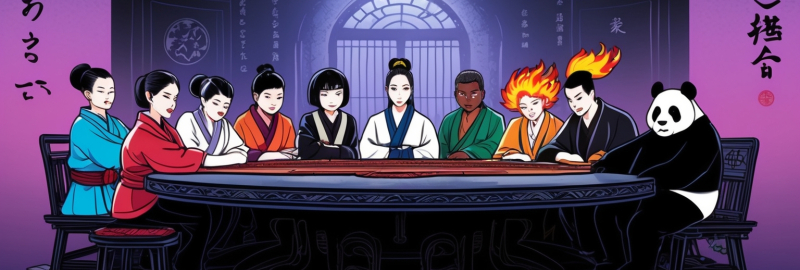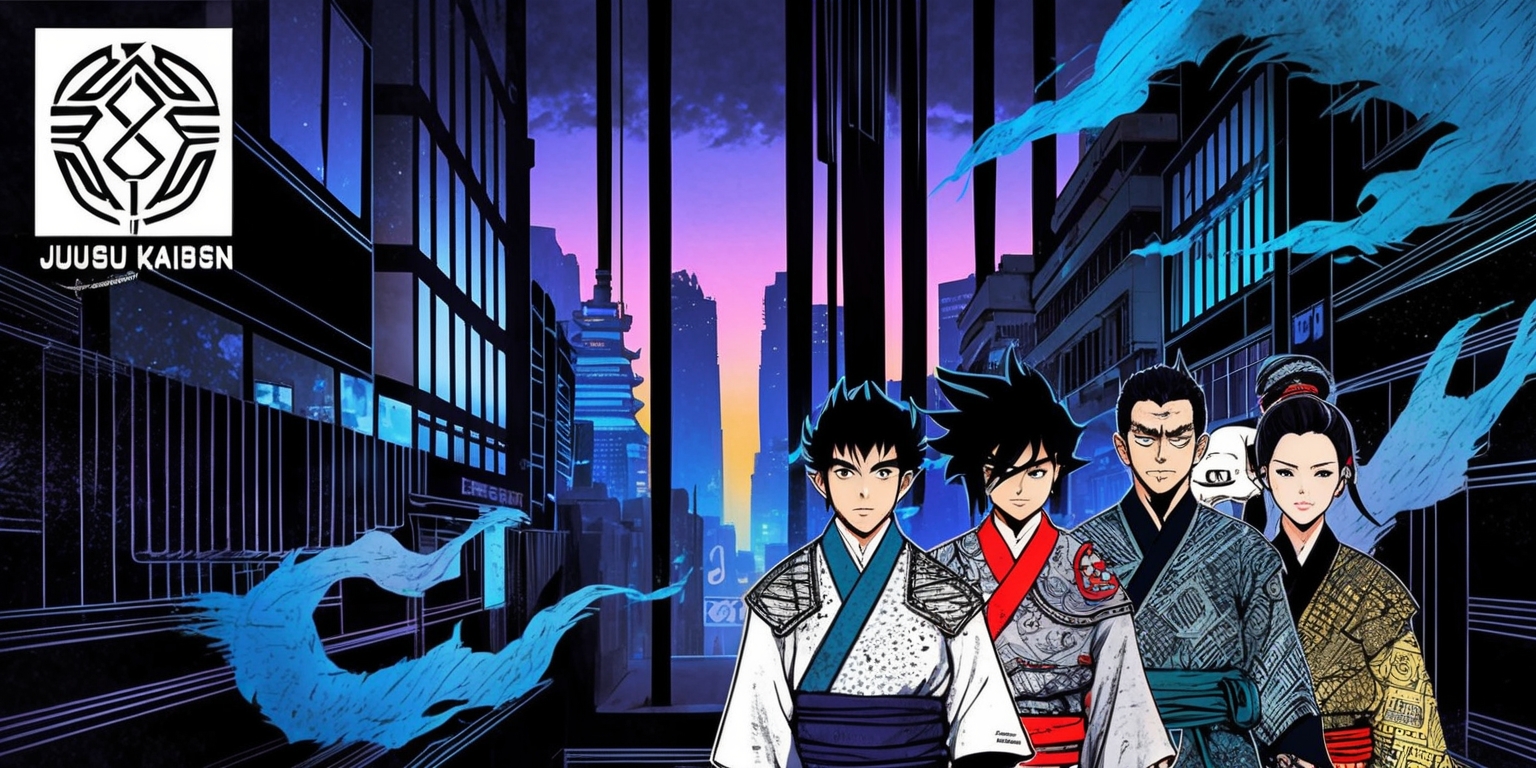
In the realm of manga and anime, character creation often reveals the deeper nuances of storytelling and the author’s artistic vision. Gege Akutami, the mind behind the popular series Jujutsu Kaisen, has crafted a spectrum of engaging characters, yet a curious tension surrounds his approach to female representation. Notably, Aoi Todo, a prominent character in the series known for both strength and comic relief, presents a unique lens through which we can examine this aspect. Recently, Akutami discussed their creative process and personal preferences in a who appreciated their own female characters. This exploration not only captures Akutami’s intention but also poses questions about character dynamics and relationships in storytelling.
Character Strength and Comedy
Aoi Todo is emblematic of a character who can provide both entertainment and solace in challenging moments. His exuberance and unwavering strength make him a captivating figure within Jujutsu Kaisen, as he balances being a fierce fighter with his humorous antics. This duality adds depth, making him a reliable ally in the heat of battle while also providing a much-needed cause for levity.
Obliviousness in Archetypal Preferences
During a recent discussion, Gege Akutami candidly admitted to a distinct lack of preference for any specific archetype when it comes to female characters. This indifference may seem surprising, especially considering the strong presence of women in Jujutsu Kaisen. However, it highlights an intriguing complexity in Akutami's character-building process, revealing an unwillingness to pigeonhole characters into established molds.
Question of Women’s Types
One of the pressing inquiries posed to Akutami was regarding the types of women that Todo may prefer. The response was both amusing and revealing. Akutami exemplified a blend of self-awareness and humor in declaring that they would choose not to answer the question directly, understanding that such evasion might incite Todo’s wrath.
Todo's Expectations and Akutami's Response

Knowing Todo's fierce personality, Akutami’s reluctance to engage with his question becomes a metaphorical pitfall. Todo’s larger-than-life character thrives within the vivid emotional spectrum of relationships, expecting a clear answer from Akutami to validate the personalities he resonates with.
Insights from Tite Kubo
Alongside Akutami during the interview was Tite Kubo, the renowned creator of Bleach. Kubo offered insight into the distinctions between males and females characters in Jujutsu Kaisen, pointing out that while males exhibit a wide range of personalities, female characters tend to share a more homogenized strength. This observation uncovers a critical conversation regarding gender representation and character diversity within the narrative.
Multiplicity of Male Archetypes
The diversity among male characters in Jujutsu Kaisen resonates with audiences. Characters such as the flamboyant Gojo and the disciplined Nanami showcase a variety of traits and personality types that enrich the series. This variability provides a canvas for exploring complex relationships and character dynamics, which is less pronounced among female counterparts.
The Female Archetype in Jujutsu Kaisen
While female characters, such as Maki and Nobara, embody strength and assertiveness, a familiar thread runs through their portrayals—each character embodies a tough exterior that defies conventional femininity. Interestingly, the singular nature of these characters can be attributed to Akutami's self-admitted inexperience with female character designs during the inception of the series.
Challenges in Representation
This challenge prompts deeper reflection about gender representation in media. The limited variety of female characterizations suggests not only an artistic choice but also the systemic difficulties that creators may face when constructing diverse female personas in male-dominated narratives.
Acknowledgment of Ownership
A notable thread running through Akutami’s commentary reveals a recognition of their limitations in breadth and depth concerning female character portrayals. By openly discussing these challenges, Akutami sheds light on the need for continuous growth and evolution in representing characters authentically and diversely.
Fan Appreciation Amid Limitations
Despite Akutami's perspective, fans have rallied around female characters within Jujutsu Kaisen, celebrating their strengths and story arcs. The complexity of female characters like Maki, who has both fierce independence and vulnerability, resonates deeply with viewers, creating a complex relationship between audience expectations and author intentions.
The Uniqueness of Female Stories
What sets the female characters of Jujutsu Kaisen apart is not merely their toughness but their unique narratives. Each character embodies a journey filled with conviction, challenges, and growth that invites audiences to relate to their challenges and successes. Their representation is not without flaws, but it creates substantial dialogue around gender roles within the fantasy genre.
Consequences of Character Creation
Creators like Akutami wield significant influence over their characters' destinies, signifying how choices in representation impact the overall narrative. The challenge arises in balancing character strengths while avoiding stereotypes, an endeavor that is continually evolving in the anime and manga industries.
A Broader Conversation About Women in Manga
Akutami's observations transcend the confines of Jujutsu Kaisen, sparking broader discussions about female representation in manga and anime culture. The ongoing dialogue reflects both the triumphs and shortcomings within the genre, urging creators to push beyond traditional boundaries and explore wider horizons of character depth.
Paving the Way for Future Narratives
In conclusion, the conversation between Gege Akutami and Tite Kubo not only reveals the intricacies of character creation but also lays the groundwork for future narratives exploring female representation. With discussions revealing both strengths and challenges in crafting female characters, the landscape of manga possesses a vast potential for growth. As audiences continue to advocate for diverse and multidimensional representations, the hope remains that creators will rise to the occasion, expanding the narrative horizons that await exploration in the manga industry.
Readers keen to explore the realm of Jujutsu Kaisen can discover more captivating stories and character arcs available on the MangaPlus app and website, where the journey unfolds further, inviting both critique and celebration of a beloved series.